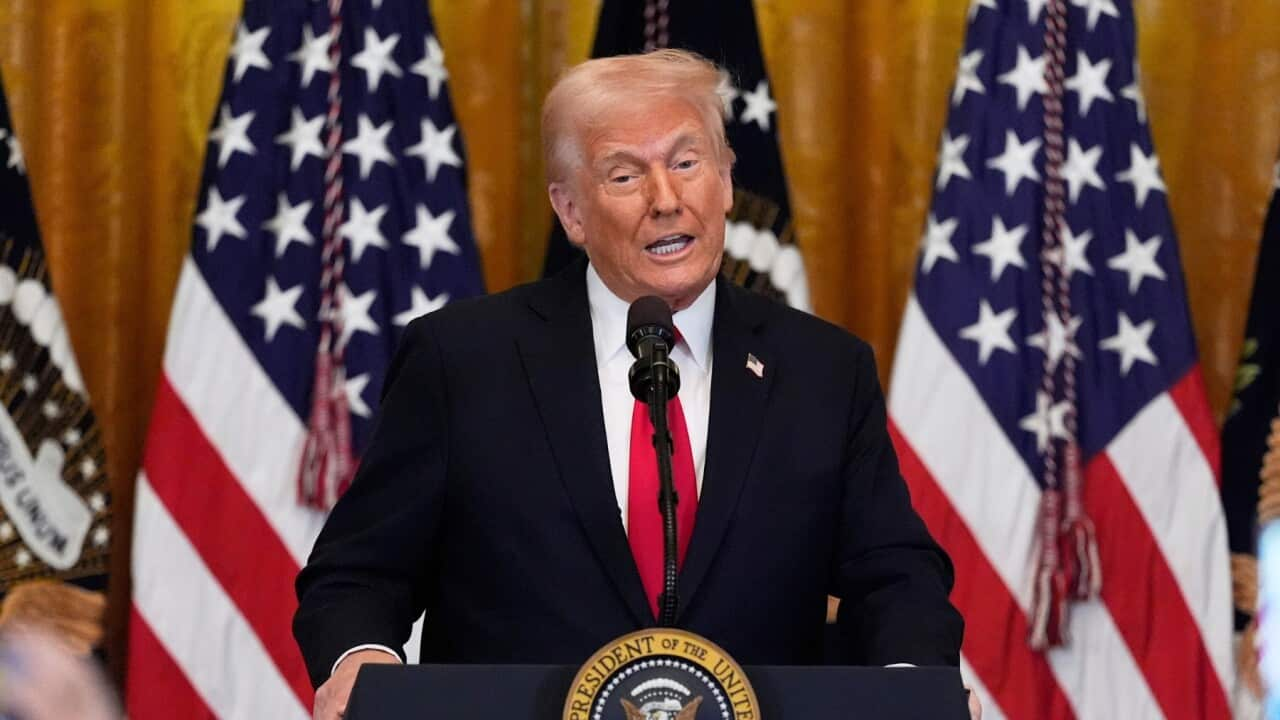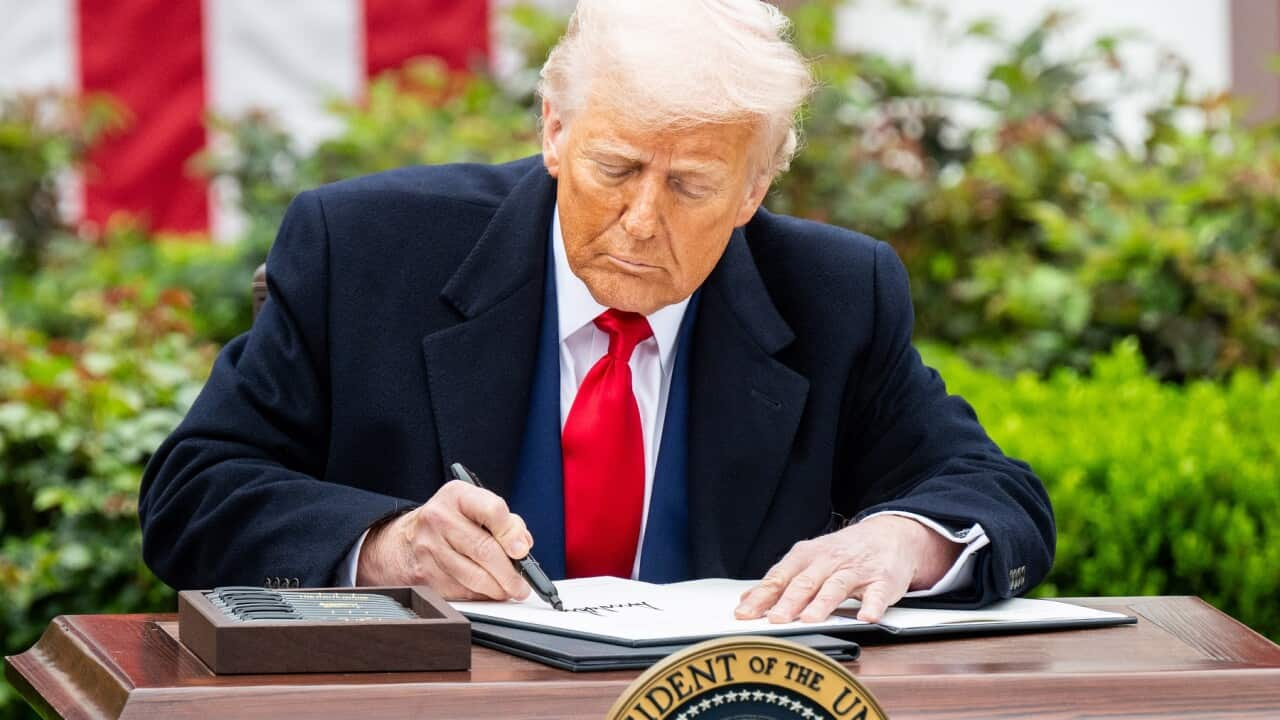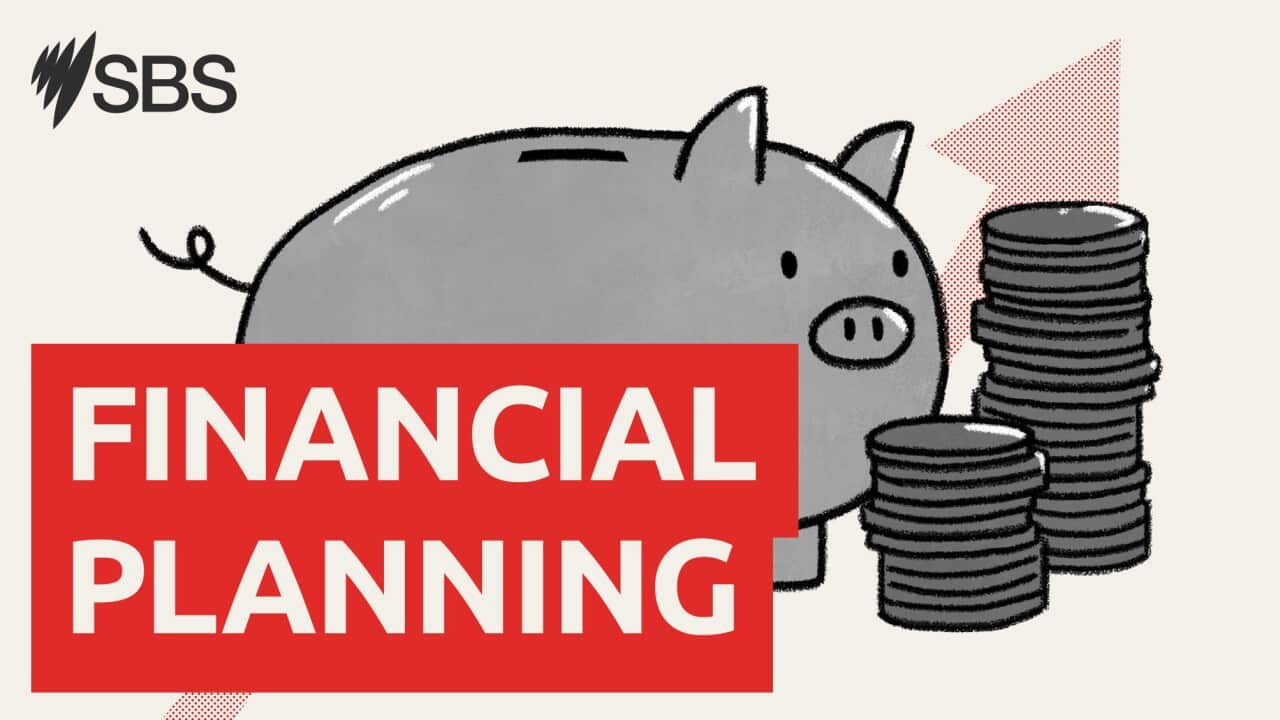TRANSCRIPT:
US President Donald Trump is calling it Liberation Day [[April 2]]... but for the rest of the world, Mr Trump's tariffs are already causing significant grief.
April 2nd has for weeks been declared the date when the US President announces further details on a wave of new reciprocal tariffs.
It comes as nations globally have already suffered a 25% tariff on steel and aluminium products - while Canada and Mexico have been hit with 25% tariffs on goods, and China - 10%.
White House Press Secretary Karoline Leavitt says the President is focused on 'fixing the wrongs of the past' and repairing the United States' economy.
"Those days of America, beginning tomorrow being ripped off are over. American workers and businesses will be put first under President Trump, just as he promised on the campaign trail. The president's historic action tomorrow will improve American competitiveness in every area of industry. Reduce our massive trade deficits and ultimately protect our economic and national security."
One of the key elements already announced is a 25% tariff targeting the automotive industry, which is expected to take effect on the 3rd of April.
As far as the other announcements are concerned, according to the Washington Post, aides are considering a plan that would raise duties on products by about 20% from nearly every country, rather than targeting certain countries or products.
A White House spokesperson has shut down any speculation ahead of the President's announcement.
But countries have already vowed to respond with their own counter-tariffs, including Canada.
Prime Minister Mark Carney insists Canada will impose retaliatory measures if there are additional measures announced against his country.
"US President Donald Trump is in the process of trying to fundamentally restructure the US economy. And that means that our economy here needs to change dramatically as well. And as I made clear to President Trump in our call last week, I will reject, I will reject all attempts to weaken Canada. All attempts to wear us down, to break us down so that America can own us."
The European Union has also issued strong words and actions against the United States since President Trump's first set of tariffs last month.
The EU responded to President Trump's steel and aluminium tariffs by unveiling countermeasures up to 44 billion dollars [[26 billion euros]] worth of American goods exports.
EU Commissioner Ursula Von Der Leyen says Europe once again has strong plans in place if negotiation fails.
"Europe did not start this confrontation. We think it is wrong. But my message to you today is that we have everything we need to protect our people and our prosperity. We have the largest single market in the world. We have the strength to negotiate. We have the power to push back."
Mexico is adopting a softer approach, after a phone call with Canada's PM where the two countries agreed to further cooperation.
President Claudia Sheinbaum emphasised on Tuesday [[April 1]] that Mexico does not subscribe to a retaliatory response regarding the US tariffs but says Mexico is prepared to respond strategically.
President Sheinbaum added that there are additional lists of alleged drug traffickers for extradition to the US, as President Trump has repeatedly framed the imposing of tariffs as a response to Mexico failing to stop drug trafficking.
"We do not believe in an eye for an eye, a tooth for a tooth, because that always leads to a bad situation. Of course, measures are taken because measures are taken on the other side, but the dialogue must continue. It's not about tit-for-tat, but about what is best for Mexico and how to face this situation."
Opposition is also coming from within the United States - including from President Trump's Democratic adversaries.
The party have introduced legislation in the US Senate aimed at blocking President Donald Trump’s tariffs on Canada.
New York Democrat Senate minority leader Chuck Schumer says the tariffs will be 'the largest tax increase on American consumers in modern times'.
"President Trump says, quote, 'I couldn't care less if prices go up.' To American families, America, you hear that Donald Trump says he couldn't care less if you pay more. And it's not just a little -- the estimates go as high as 6,500 dollars more for the average American family. To the family that's sitting down Friday night and trying to figure out, do they have enough money to go on that vacation or to visit grandma or maybe to to buy a car."
Fears of escalating prices are paramount for ordinary consumers in the United States - including these Manhattan residents.
PERSON 1: "I'm worried about the tariffs."
REPORTER: “Why?”
PERSON 1: "Because it's going to make up most of what I buy more expensive. If it still remains available."
PERSON 2: "Well, the increase in prices, things are tough enough as it is now, you know, and then increasing prices is going to hurt a lot of pocketbooks here."
Referring to tariffs as his favourite word, President Trump and his allies insist the tax on imports will encourage US consumers to buy more American-made goods, boosting the country's economy and increasing revenue through taxes.













